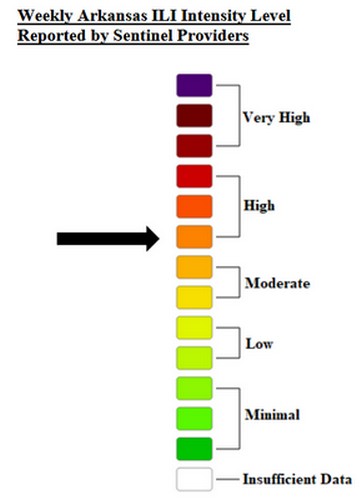According to the American Heart Association, more than half of US adults are unaware that heart disease is the leading cause of death in the country, and this is worrisome considering that many of these fatalities can be avoided. Heart disease, also known as cardiovascular disease, encompasses a range of health issues affecting the heart’s function and can be caused by genetic factors or develop gradually over time. The most prevalent form of heart disease in the US is coronary artery disease, where arteries become clogged with plaque, restricting blood flow. Despite genetic predispositions, such as a family history of high cholesterol, many people can prevent or decrease their risk of developing this type of heart disease. However, several daily habits, including an inadequate diet, prolonged sitting, and insufficient sleep, contribute to what cardiologist Dr. Andrew Freeman calls the “American curse,” which he indicates is prevalent in much of the Western world as well. Below are details about the symptoms of heart disease and associated health issues, along with tips from cardiologists to enhance heart health in enjoyable ways.
 Hector Roqueta Rivero/Getty ImagesWhat are the symptoms of heart disease? The symptoms you experience will depend on the condition of your heart, if you have any at all. Early signs of heart disease, as outlined by the Cleveland Clinic, could include chest pain, shortness of breath, leg swelling, fatigue, and dizziness. Most individuals with heart disease have coronary artery disease, which commonly results in chest pain known as angina. If you have not been diagnosed with chest pain and it does not diminish when resting, it could be indicative of a heart attack, prompting the need to call 911 immediately. Prompt action significantly enhances survival prospects following a heart attack. In some instances, a person’s first indication of heart disease is through a heart attack. According to the US Centers for Disease Control and Prevention, symptoms of a heart attack involve chest pain or discomfort, weakness or light-headedness, nausea, cold sweating, shoulder pain, and shortness of breath. Women may experience less conspicuous symptoms during a heart attack, such as jaw or back pain, hence it is important not to dismiss symptoms if there is a possibility of a heart attack. Due to the variability and potential absence of heart disease symptoms, prevention, regular screenings, and immediate consultation with a doctor about any concerns are advisable. Details for individuals with high blood pressure Roughly half of US adults have high blood pressure (hypertension), which is relevant to discussions about heart disease as it can harm blood vessels. The positive news, according to Dr. Jonathan Vafai, a cardiologist at Delray Medical Center, is that high blood pressure can be controlled or reversed. Additionally, many practices that enhance heart health can also help regulate blood pressure. In specific cases and with authorization from a doctor who has evaluated heart health, it may even be possible to discontinue medication use. “My favorite thing to do is discontinue people’s blood pressure medications when appropriate,” Vafai remarked. How about elevated cholesterol levels? Plaque in the arteries, a characteristic of heart disease, is primarily composed of cholesterol and other substances, underscoring the importance of monitoring cholesterol levels. While the intricacies of cholesterol are intricate, medical practitioners are aware that excessive “bad” cholesterol can promote coronary artery disease and impair blood vessels and the heart. For middle-aged individuals with risk factors for heart disease, such as high cholesterol, diabetes, or a family history of heart disease, Vafai suggests a calcium score scan or other screenings. This non-invasive series of X-rays detects calcium-containing plaque, providing a means to assess risk before disease symptoms manifest. Elevated cholesterol presents similarities to other chronic, often asymptomatic maladies that are correlated and impact quality of life. Despite the complexity of the conditions, adopting small changes to daily routines and overall well-being can mitigate the risk of developing them.
Hector Roqueta Rivero/Getty ImagesWhat are the symptoms of heart disease? The symptoms you experience will depend on the condition of your heart, if you have any at all. Early signs of heart disease, as outlined by the Cleveland Clinic, could include chest pain, shortness of breath, leg swelling, fatigue, and dizziness. Most individuals with heart disease have coronary artery disease, which commonly results in chest pain known as angina. If you have not been diagnosed with chest pain and it does not diminish when resting, it could be indicative of a heart attack, prompting the need to call 911 immediately. Prompt action significantly enhances survival prospects following a heart attack. In some instances, a person’s first indication of heart disease is through a heart attack. According to the US Centers for Disease Control and Prevention, symptoms of a heart attack involve chest pain or discomfort, weakness or light-headedness, nausea, cold sweating, shoulder pain, and shortness of breath. Women may experience less conspicuous symptoms during a heart attack, such as jaw or back pain, hence it is important not to dismiss symptoms if there is a possibility of a heart attack. Due to the variability and potential absence of heart disease symptoms, prevention, regular screenings, and immediate consultation with a doctor about any concerns are advisable. Details for individuals with high blood pressure Roughly half of US adults have high blood pressure (hypertension), which is relevant to discussions about heart disease as it can harm blood vessels. The positive news, according to Dr. Jonathan Vafai, a cardiologist at Delray Medical Center, is that high blood pressure can be controlled or reversed. Additionally, many practices that enhance heart health can also help regulate blood pressure. In specific cases and with authorization from a doctor who has evaluated heart health, it may even be possible to discontinue medication use. “My favorite thing to do is discontinue people’s blood pressure medications when appropriate,” Vafai remarked. How about elevated cholesterol levels? Plaque in the arteries, a characteristic of heart disease, is primarily composed of cholesterol and other substances, underscoring the importance of monitoring cholesterol levels. While the intricacies of cholesterol are intricate, medical practitioners are aware that excessive “bad” cholesterol can promote coronary artery disease and impair blood vessels and the heart. For middle-aged individuals with risk factors for heart disease, such as high cholesterol, diabetes, or a family history of heart disease, Vafai suggests a calcium score scan or other screenings. This non-invasive series of X-rays detects calcium-containing plaque, providing a means to assess risk before disease symptoms manifest. Elevated cholesterol presents similarities to other chronic, often asymptomatic maladies that are correlated and impact quality of life. Despite the complexity of the conditions, adopting small changes to daily routines and overall well-being can mitigate the risk of developing them.
 Carol Yepes/Getty Images1. Consume more plant-based and whole foods To diminish heart disease risk, Freeman suggests a primarily plant-based diet with lower fat content and rich in whole foods. Whole foods need not be extravagant; in fact, it entails consuming unprocessed foods like fruits, vegetables, legumes, and whole grains. Seasoning and flavoring these foods is acceptable, but the intention is to derive maximum nutritional value from the food source while excluding added preservatives or sugars. One approach to integrating more nutritious foods into your diet is by emphasizing color variety on your plate. 2. Exercise caution with meaty or restrictive diets While high-protein and extreme “lion diets” have gained popularity on social media with claims of alleviating chronic pain and health conditions by removing certain foods, experts advise prudence due to potential health risks associated with protein choices like excess consumption of red or processed meats. The keto diet, though supported by research for weight loss, may not suit everyone. “When you cut out ‘carbage’,” Freeman explained, in reference to excessive carb consumption, “people lose weight.” “But that doesn’t necessarily mean they’re healthier,” he cautioned.
Carol Yepes/Getty Images1. Consume more plant-based and whole foods To diminish heart disease risk, Freeman suggests a primarily plant-based diet with lower fat content and rich in whole foods. Whole foods need not be extravagant; in fact, it entails consuming unprocessed foods like fruits, vegetables, legumes, and whole grains. Seasoning and flavoring these foods is acceptable, but the intention is to derive maximum nutritional value from the food source while excluding added preservatives or sugars. One approach to integrating more nutritious foods into your diet is by emphasizing color variety on your plate. 2. Exercise caution with meaty or restrictive diets While high-protein and extreme “lion diets” have gained popularity on social media with claims of alleviating chronic pain and health conditions by removing certain foods, experts advise prudence due to potential health risks associated with protein choices like excess consumption of red or processed meats. The keto diet, though supported by research for weight loss, may not suit everyone. “When you cut out ‘carbage’,” Freeman explained, in reference to excessive carb consumption, “people lose weight.” “But that doesn’t necessarily mean they’re healthier,” he cautioned.
 Radoslav Zilinsky/Getty Images3. Engage in physical activity, in any form Prolonged sitting is detrimental to health, but minimal effort is required to commence reaping the benefits of physical activity for heart health. “I’d advise people to do whatever they can,” Vafai suggested, noting that he has observed health improvements following regular walking with a pet. Simply engage in some form of physical activity each day. Freeman recommends gauging the effectiveness of your exercise by the point at which it becomes “difficult to talk.” Here is further guidance on achieving physical activity when lacking motivation and incorporating a “movement” break into your routine. 4. Be mindful of consumption and smokingAs widely known, smoking is detrimental to health and is linked to heart disease. Additional substances, including alcohol and cannabis, may also have an impact, as Freeman highlighted. Optimal choices for heart health include water, unsweetened teas, and coffee, along with caution for regular and diet soda consumption due to effects on insulin.
Radoslav Zilinsky/Getty Images3. Engage in physical activity, in any form Prolonged sitting is detrimental to health, but minimal effort is required to commence reaping the benefits of physical activity for heart health. “I’d advise people to do whatever they can,” Vafai suggested, noting that he has observed health improvements following regular walking with a pet. Simply engage in some form of physical activity each day. Freeman recommends gauging the effectiveness of your exercise by the point at which it becomes “difficult to talk.” Here is further guidance on achieving physical activity when lacking motivation and incorporating a “movement” break into your routine. 4. Be mindful of consumption and smokingAs widely known, smoking is detrimental to health and is linked to heart disease. Additional substances, including alcohol and cannabis, may also have an impact, as Freeman highlighted. Optimal choices for heart health include water, unsweetened teas, and coffee, along with caution for regular and diet soda consumption due to effects on insulin.
 AlexSava/Getty Images5. Emulate behaviors from the ‘blue zone’Communities residing in “blue zones,” such as Loma Linda, California in the US, have inhabitants who typically enjoy extended lifespans, potentially attributed to their collective lifestyle, nutrition, activity, and sleep patterns. Freeman recommends adopting practices from these communities renowned for longevity. 6. Manage stress and foster connections The prevalent “loneliness epidemic” is tied to poor health outcomes, including heart disease and premature mortality, although the exact mechanism is challenging to pinpoint. Stress hormones and lifestyle implications stemming from reduced social connections may play a role. Freeman noted that diminished social connections are culturally embedded and a contributing factor to heart disease. Though there is no swift remedy for this widespread issue, Freeman encourages activities like meditation or nature walks. Additional strategies for combatting loneliness and managing daily stress are available.
AlexSava/Getty Images5. Emulate behaviors from the ‘blue zone’Communities residing in “blue zones,” such as Loma Linda, California in the US, have inhabitants who typically enjoy extended lifespans, potentially attributed to their collective lifestyle, nutrition, activity, and sleep patterns. Freeman recommends adopting practices from these communities renowned for longevity. 6. Manage stress and foster connections The prevalent “loneliness epidemic” is tied to poor health outcomes, including heart disease and premature mortality, although the exact mechanism is challenging to pinpoint. Stress hormones and lifestyle implications stemming from reduced social connections may play a role. Freeman noted that diminished social connections are culturally embedded and a contributing factor to heart disease. Though there is no swift remedy for this widespread issue, Freeman encourages activities like meditation or nature walks. Additional strategies for combatting loneliness and managing daily stress are available.
Symptoms of Heart Disease and How to Prevent the ‘American Curse’














